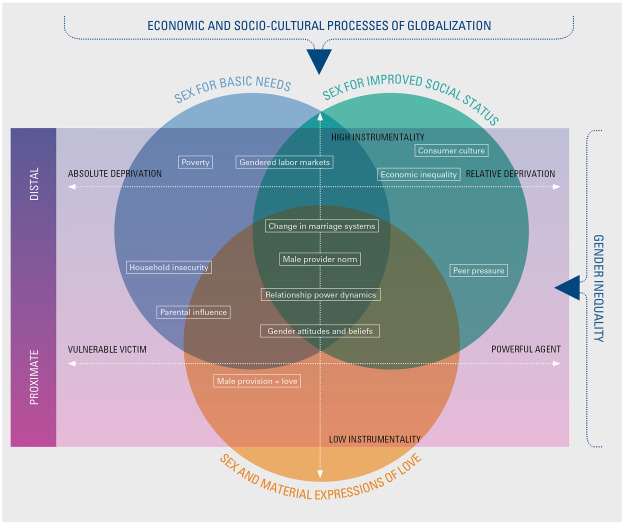In sub-Saharan Africa, young women ages 15–24 have more than twice the risk of acquiring HIV as their male counterparts. A growing body of epidemiological evidence suggests that the practice of “transactional sex” (TS) may contribute to this disparity.
Over the last 15 years, the social sciences have contributed significantly to understanding the meaning of and motivations for this practice. The findings from these studies are rich, but varied, rendering lessons difficult to navigate for intervention and further research. This paper contributes a historically-grounded, comprehensive literature review on the nature and motivations for women's participation in TS in sub-Saharan Africa.
Drawn from over 300 studies (through 2014) the literature review:
- provides a comprehensive review of literature on TS in sub-Saharan Africa
- summarises three main paradigms of TS
- introduces a conceptual framework to unify disparate paradigms
- discusses implications for definition of TS
- considers implications for HIV interventions with young women
Main paradigms
- Sex for basic needs
- Sex for improved social status
- Sex and material expressions of love
Implications for defining TS
Any one paradigm taken alone provides an incomplete view of the practice, which is particularly important to highlight given the dominance of the vulnerable victim perspective among programmes and donors. This review offers a conceptual framework that unifies the paradigms by highlighting a common set of broad structural forces that shape each of them, and by introducing a series of continua that stretch across them:
Click on the image to view a larger version.
Implications for HIV interventions with young women
- Framing of young women's risk of HIV within the vulnerability paradigm impedes interventions when women do not see themselves in the “characters” portrayed by these strategies.
- Stigmatisation of all age-disparate relationships overlooks the ways in which they can be nurturing and caring, not only coercive and violent.
- Interventions must consider agency, aspirations and love within the context of TS.
- Young women should critically assess their own agency, in particular when and how it may give way to unwanted actions or outcomes.
- Gender expectations concerning male provision - central to all paradigms - stands to hurt both women, who may then be less likely to seek financial independence, and men, who increasingly struggle to meet such expectations.
Women should not be reduced to helpless victims, nor to immoral social climbers.




